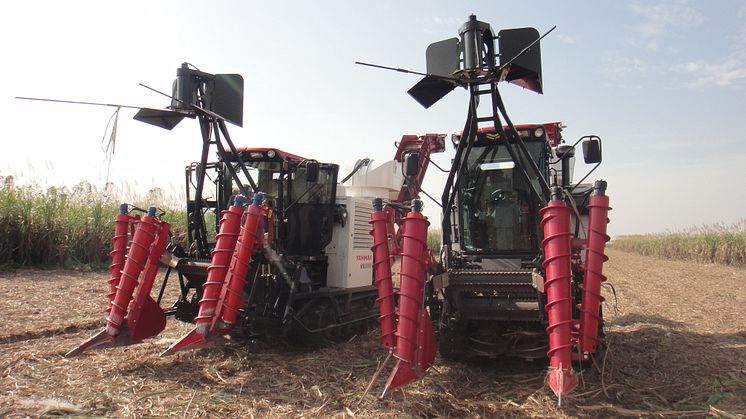Cultivating Innovation on the European Sake Rice Journey
Yanmar has developed 2 varieties of sake rice that can grow in the European climate, offering a new and exciting experience for consumers in the form of locally produced sake.
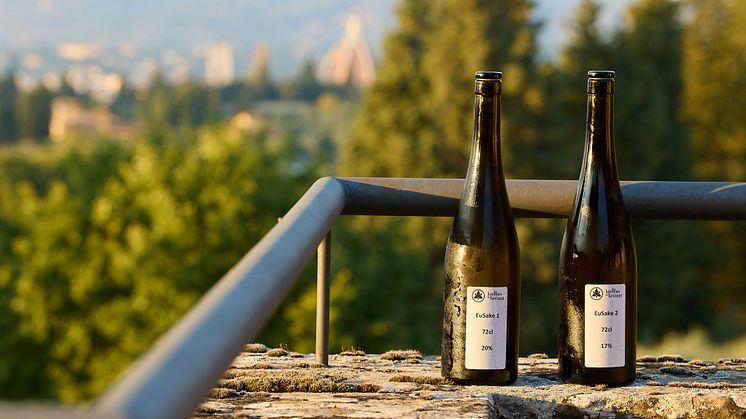
Yanmar has developed 2 varieties of sake rice that can grow in the European climate, offering a new and exciting experience for consumers in the form of locally produced sake.

Pionnier dans les solutions pour les clients sur terre, en mer et en ville, le projet de riz à saké de Yanmar illustre l'engagement de l'entreprise à créer une société offrant une vie passionnante remplie d'expériences riches et épanouissantes.

Pioniere nelle soluzioni per i clienti sulla terra, in mare e in città, il Progetto Sake Rice di Yanmar esemplifica l'impegno dell'azienda nel creare una società che offra una vita eccitante piena di esperienze ricche e appaganti.

Yanmar has been on its zero greenhouse gas emissions path for over a decade. The scale of the challenge is huge – and success will be driven by economic considerations more than concern for the climate, believes Chief Strategy Officer Shiori Nagata. Through the Yanmar Green Challenge 2050, Yanmar will achieve its goal of zero environmental impact goal, offering a range of solutions to customers.
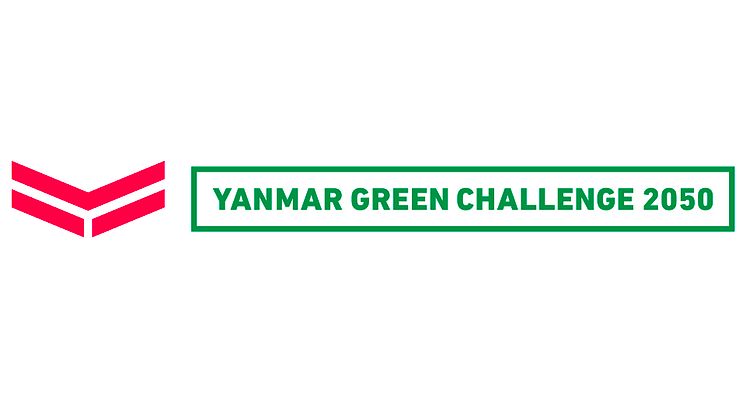
Having a common vision to increase agricultural development in Indonesia, Yanmar Co., Ltd. together with the Bogor Agricultural University (IPB) formed a collaborative research institute called Yanmar Agricultural Research Institute - IPB. YARI-IPB conducts research into crops and agricultural machinery , develops local human resources and disseminates agricultural research and technology.
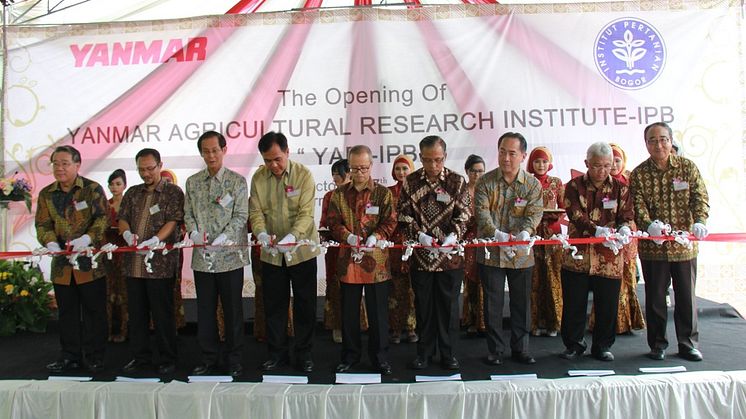
Just south of Jogjakarta in central Java is Sriharjo village. It looks like many of the other villages that dot the surrounding countryside but this village is a model of sustainability. Defended against the threat of climate change, it supports the land and the local community, provides for peoples’ lifestyles and nurtures valuable environmental knowledge.
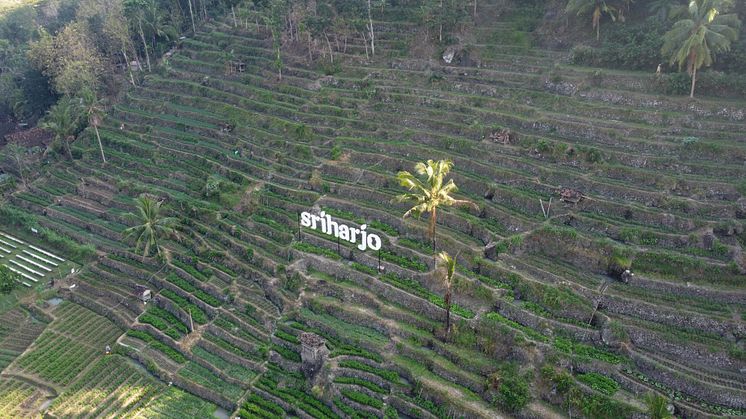
Agriculture in the future will see increasing use of scientifically precise farming techniques, where automated ‘agro-bots’ monitor, treat and work the land, using advanced technology designed to help maximize yields and minimize disease. With its extensive experience in automation and agricultural mechanization, Yanmar is now showing the way in advanced field robotics research.
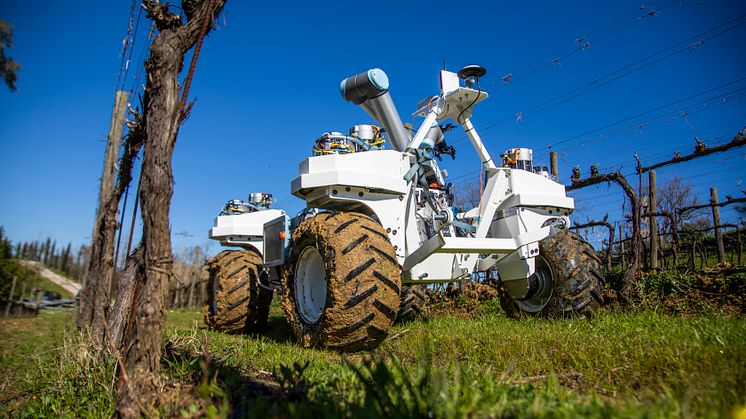
From labor shortages to an aging population and a shortage of farmers in the next generation, Japan’s agriculture industry is dealing with a myriad of issues. At the same time, some in the industry are tackling these problems head on and see agricultural robotization as one approach to meeting the challenges facing the industry.
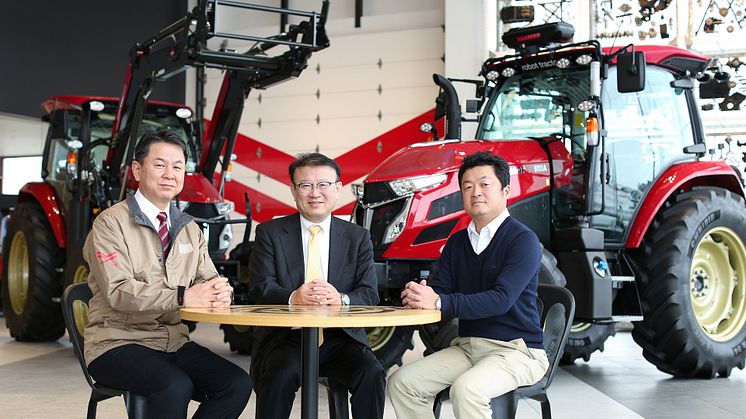
At the BayWa Winter Service Demo Event in Munich, Germany, Yanmar compact tractors were center stage demonstrating their utility in the important tasks of mowing and greens maintenance, street cleaning and maintenance, snow removal and soil preparation or even agricultural work. Visitors had a chance to examine the tractors in detail and even drive them to see how they really operate.
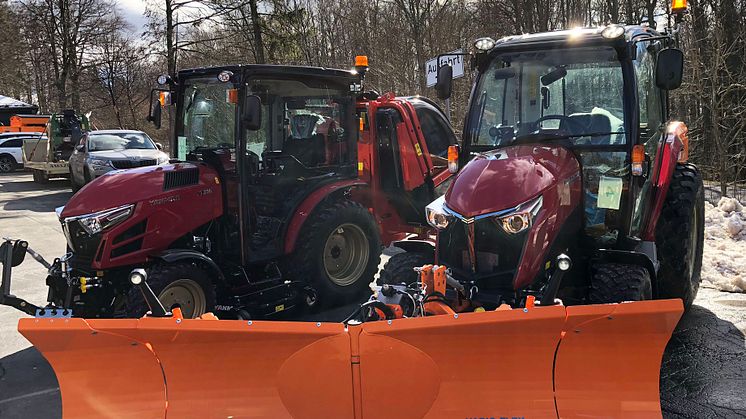
Leading global manufacturer of engines and industrial equipment, Yanmar, has entered the food industry, with its gluten-free Rice gelée ingredient. Yanmar showed Rice gelée at the world’s largest food innovation exhibition. Rice gelée, a natural gluten-free food product made from just rice and water, was met with great interest at its first outing outside of Japan.

Yanmar is set to embark on an ambitious 2-year, 4 million Euro project in cooperation with 10 technology partners to develop a modular robotic system to monitor, analyze and manage agricultural crops. The Smart Machine for Agricultural Solutions Hightech (SMASH) project is co-financed under the Tuscany region of Italy and scheduled to run to 2020.

Amid rising demand for sugarcane as a sweetener and in ethanol, Yanmar has delivered the HS2000 sugarcane harvester to the Thai market, the world's 4th largest producer and 2nd largest exporter of sugar cane.
